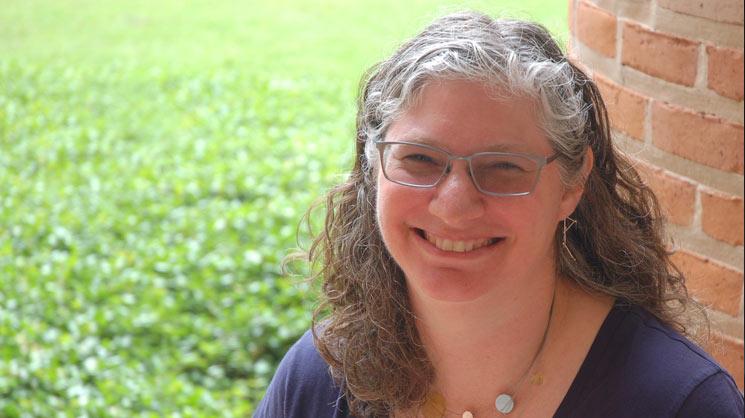One and a half years after earning her Ph.D. in computer science (CS) at Rice University, Risa B. Myers has joined the CS faculty as a full-time lecturer.
“It’s like coming home,” said Myers, who is teaching the graduate-level “Introduction to Data Base Systems” in the fall and will teach two classes beginning in the spring.
For her current class, Myers has had her 42 students build a database based on her neighbor’s ice-cream food truck business. “It’s a real-world problem. They’re building it from scratch, and it’s about a real business. They can’t just Google the answer,” she said.
“Computer science has grown not only in size—we are the largest major on campus—but also in impact and influence across the field’s traditional boundaries,” said Luay Nakhleh, professor and chair of CS at Rice. “We are in need of excellent faculty to help us with the education mission as we adjust to this growth. Risa is the perfect person for the job, given her excellence and professionalism in teaching and her research area, data science.”
Myers’ education and work experience has been varied and unconventional. In 1989 she earned a B.S. in computer science and engineering from MIT. Four years later she received a master’s degree in CS from Stanford. Next came a certificate in health information sciences from the University of Texas Health Science Center’s school of biomedical informatics in 2010.
Myers earned a second M.S. in CS, this time from Rice in 2013, followed in 2016 by her Ph.D. Her thesis was titled “Synthesis of Patient Data to Predict Outcomes,” and her adviser was Chris Jermaine, professor of CS.
Among her various jobs, Myers worked from 1996 to 2008 as a senior IT project manager at Perot Systems Corp. in Houston, followed by two years as a principal application systems analyst at the M.D. Anderson Cancer Center. Since earning her Ph.D., she has worked as a data scientist at Methodist Hospital.
Much of her research has focused on medical applications. At Houston Methodist, Myers conducted quality and clinical outcomes research for a seven-site hospital system with more than 2,500 patient beds.
Her research often deals with applying machine learning to healthcare. “As we collect more and more patient data, we can use it to improve care, reduce costs, better understand disease and predict clinical outcomes. For hospitals, the data scientist role is something new but the potential for impact is huge.”

